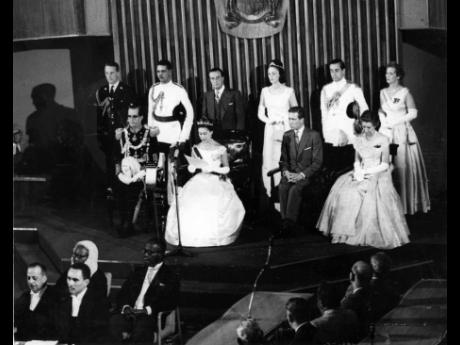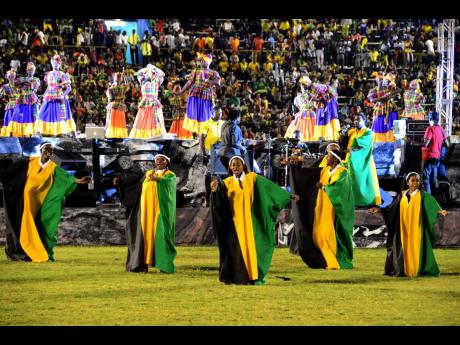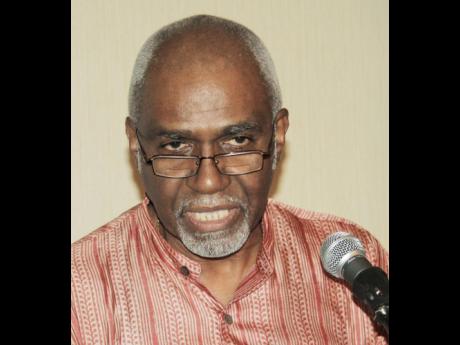Patrick Robinson | The irrelevance of readiness for independence
For the Commonwealth Caribbean States, the resolution of the issues relating to the removal of the Queen as their Head of State has been bedevilled by what I describe as the colonial doctrine of gradualism and lack of readiness. According to this doctrine, a people do not have any inherent right to independence, and it is only by a process of gradualism that they may, after colonisation for 300 years or so, achieve internal self-government, and thereafter, independence.
The norms in international law make clear that all peoples have a right to independence. The United Nations General Assembly (UNGA) Resolution 1514 XV of December 14, 1960, on the Granting of Independence to Colonial Countries and Peoples provides in Paragraph 2 that “all peoples have the right to self-determination; by virtue of that right they freely determine their status and freely pursue their economic, social and cultural development”. Paragraph 3 reads, “Inadequacy of political, economic, social or educational preparedness should never serve as a pretext for delaying independence.” UNGA Resolution 1514 is the most frequently cited resolution of the General Assembly. It has been described as the “Magna Carta of colonial peoples”. It is so transformational and seminal that I simply call it by one name: 1514. It should be taught in all our schools.
Therefore, under international law, a colonial people’s right to independence is in no way dependent on a determination that they are ready for that status. According to Paragraph 3 of 1514, it will not avail the colonial masters to say that the colonised are not politically, economically, socially, or educationally prepared for independence because all peoples have the right to self-determination, independently of what the colonial overlords may believe to be their level of preparedness for that status. Thus, the great pan-Africanist, Kwame Nkrumah, was right when he said, “No people without a government of their own can expect to be treated as the people of independent, sovereign states. It is far better to be free to govern or misgovern yourself than to be governed by anybody else”.
A system of government in which Jamaica’s Head of State is a foreigner, who does not reflect our culture and who lives over 4,000 miles from Jamaica, cannot represent full independence. Nor can it be said that we enjoy full independence when the legal basis of our Constitution is a United Kingdom Order in Council. Belize is the only Commonwealth Caribbean state whose constitution is based on legislation enacted at independence by its own Parliament. Moreover, a system of government in which our final appellate court is a foreign body, the UK Privy Council, does not represent full independence. The question that must be asked today is why, in order to attain full independence, are we behaving as though we are not independent and still subject to the outlawed colonial doctrine of gradualism and lack of readiness.
NOT DERIVED ANY BENEFIT
Jamaica has not derived any benefit in the last 60 years that it would not have had were the Queen of England not Jamaica’s Head of State. The main reason for Jamaica’s strange constitutional position is the feeling inculcated in us by years of colonial rule and conditioning that we were not fit enough on August 6, 1962, to sever ties with the British Monarchy.
In 1962, both the Jamaican Premier, Sir Alexander Bustamante, and the Leader of the Opposition, Norman Manley, favoured the retention of the Queen of England as Jamaica’s Head of State. Sir Alexander, in his characteristically unsubtle manner, said, “I am with the Queen”, and Norman Manley’s admiration for the British constitutional system was well-known. Prior to independence, no serious consideration was given by the Joint Committee of Parliament to several proposals, including some from the University College of the West Indies, that on attaining independence, Jamaica should become a republic. Regrettably, in my view, both National Heroes exhibited a lack of confidence in the Jamaican people to govern themselves, free from any constitutional attachment to the British Monarch. In doing so, they reinforced the colonial concept of lack of readiness that was explicitly rejected in Paragraph 3 of 1514. Professor Trevor Munroe may be correct that “the British likely would have been doubtful” about a republican form of government. However, a republican form of government was never on the table in the constitutional negotiations for independence between Jamaica and the UK. In the result, we have a constitutional system in which, in independent Jamaica, executive powers are vested in Her Majesty, although these powers are in practice exercised by the Cabinet, and the Queen of England is Jamaica’s Head of State.
COLONIAL DOCTRINE
That today we are still plagued and conditioned by the colonial doctrine of gradualism and lack of readiness is evident from the Honourable Prime Minister’s statement, reported in the Daily Observer of December 10, 2021, that:
“There are some people who want to speak prosperity into being, speak sovereignty and independence into being. My philosophy is that we must do these things into being. We must make them happen. It must not be empty symbolism. It must be genuine, it must be borne of action that what we say we are; it is what we are in our action and in our achievement and in what we have done.”
My emphasis. The words in this statement, which on its face appears laudable in its emphasis on actions rather than words, reflect a serious misunderstanding of how independence for the colonised was shaped by history and by law. The statement is a classical portrayal of the colonial mantra that the colonised are not prepared for independence. According to the honourable prime minister, we “must do” full independence “into being”. Over a period of hundreds of years, a great battle was waged between the coloniser and the colonised about independence for the latter. That conflict was settled decisively by 1514. That victory over colonialism was won through the struggles of our ancestors. Justice Batts was correct when, in the 2019 Supreme Court Judgement on the National Identification System, he located our constitutional rights and freedoms in the context of the struggles of our enslaved and freed ancestors for the recognition of their inherent worth and dignity.
The honourable prime minister’s recent statement that Jamaica will move to become a republic is either a change of position or, apparently, the action and achievements that he deemed necessary for full independence in December have been realised in the short time of three months.
NOT MERE WORDS
That the declaration in 1514 that all peoples have the right to self-determination is not mere words ‘howled out in the desert air’ is confirmed by the 2019 Advisory Opinion of the International Court of Justice (ICJ) in the Chagos case. Mauritius was a colony of the United Kingdom that had as part of its territory the Chagos Archipelago. In 1965, the United Kingdom detached the Chagos Archipelago from Mauritius to allow the United States to establish a military base thereon. For that purpose, it removed all the residents of the archipelago, black persons, whose ancestors had been brought more than one hundred years before to work as slaves on the plantations of the islands. The General Assembly asked the Court to determine whether in light of the detachment of the Chagos Archipelago by the United Kingdom in 1965, the process of decolonisation was lawfully completed when Mauritius became independent. The Court held that the Resolution (1514) had “a declaratory character with regard to the right to self-determination as a customary norm, in view of its content and the conditions of its adoption” and that in light of the United Kingdom’s detachment of the Chagos islands from Mauritius in 1965, prior to its independence in 1968, the process of decolonisation was not lawfully completed when Mauritius became independent.
Customary international law, which is a general practice of states accompanied by the belief that there is a legal obligation to follow that practice, is binding on all states. 1514 was adopted by 89 votes in favour, none against, and nine abstentions. In the year 1960, 18 countries became independent. By August 1962, another eight countries had become independent. In 1963, Rosalyn Higgins, who later became a member and president of the ICJ, wrote that 1514, “taken together with 17 years of evolving practice by the United Nations organs, provides ample evidence that there now exists a legal right to self-determination”. There can be no doubt, therefore, that by the end of 1960, but if not, then certainly by August 1962, the right to self-determination, which found expression in the American Revolution, the French Revolution and the South American Bolivarian independence movement, had crystallised as a rule of customary international law.
Thus, in August 1962, the United Kingdom was under an international obligation to respect the right to self-determination of all its colonies, and any breach of that obligation would engage its international responsibility.
- Judge Patrick Robinson is a Jamaican member of the International Court of Justice. Judge Robinson has been a member of the ICJ from 2015. The views expressed in this article do not necessarily reflect those of the ICJ. This article is the first in a two-part series around Jamaica’s 60th anniversary of independence. Send feedback to columns@gleanerjm.com.



